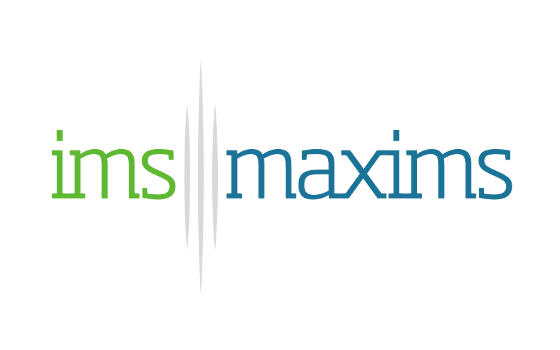 Clinical technology specialist IMS MAXIMS will be launching its fully integrated vital signs application at eHealth Week on 3rd and 4th May in Olympia, London. Delegates will be the first to use the app, designed to improve patient outcomes by enabling staff to respond to a patient's condition from anywhere in the hospital before it becomes life-threatening.
Clinical technology specialist IMS MAXIMS will be launching its fully integrated vital signs application at eHealth Week on 3rd and 4th May in Olympia, London. Delegates will be the first to use the app, designed to improve patient outcomes by enabling staff to respond to a patient's condition from anywhere in the hospital before it becomes life-threatening.
The application uses physiological observations such as blood pressure and heart rate to calculate the severity of a patient's condition and gives staff crucial decision support. Using clinical scoring protocols such as NEWS (National Early Warning System), it recommends how often to monitor a patient, issues reminders if observations aren’t completed on time, and importantly provides early detection, alerting, and escalations to senior members of staff, if the condition deteriorates.
Users have the added advantage of integrating the data into the hospital’s electronic patient record, as the app harnesses APIs that have been developed with open standards. Interoperating with other clinical systems and NHS’ web portal, the Spine, means the information is incorporated into every element of the patient’s care pathway.
Staff can make accurate clinical decisions based on all the facts and in real-time. Earlier intervention and treatment - enabled by recording and monitoring these vital signs electronically, and automating parts of diagnosis - will also help hospitals reduce mortality rates and serious complications such as Sepsis, dialysis and cardiac arrest.
Michael Thick, Chief Clinical Information Officer and Chief Medical Officer, IMS MAXIMS said: "Mobile apps can provide vital support to healthcare professionals that are already under great pressure to meet service demands. The 24/7 monitoring system and vital decision support make it quicker and easier for staff to observe a patient’s condition and prevent them from getting any worse.
"Crucially, being fully integrated with an enterprise-wide solution, doctors and nurses only ever have one version of the truth. This is particularly important when changes to a patient's condition are harder to manage and can be fatal, for example during clinical handovers and ward transfers."
Ensuring the app suits the specific needs of its users, IMS MAXIMS worked in partnership with its customer Taunton and Somerset NHS Foundation Trust on the design and functionality. It subsequently addresses a common pitfall of existing clinical apps - alert fatigue - which can lead to clinical alerting being missed or turned off. The MAXIMS solution gives staff tailored alert support, avoiding the send-to-all approach of other solutions.
Delegates at eHealth Week will be the first to use the new app, which forms part of IMS MAXIMS Bedside mobile health solution, which will include further releases this year. The Bedside module includes additional functionality such as bed management, clinical handovers, clinical noting on ward-rounds, order communications and the detection and management of life-threatening conditions such as Sepsis and Acute Kidney Infection.
Neill McAnaspie, Solutions Director, IMS MAXIMS added: "Mobile health is the natural next step on the journey to ensuring our healthcare system can meet the needs of its patients and those that care for them. It's an integral part of our product roadmap and why we’re so excited to be showcasing the functionality and benefits at such an important event like eHealth Week."
About IMS MAXIMS
IMS MAXIMS is an award winning clinical technology specialist committed to improving the coordination of patient care in healthcare environments. Its expert team works in partnership with healthcare organisations to identify and deliver tailored, sustainable information sharing technology solutions supporting the provision of safer and more efficient care for current and future generations.
The organisation's 30-year history of collaborating with clinicians has resulted in the development of proven, flexible, user-friendly, safe and interoperable open source electronic patient record software. With an ambition to meet today's healthcare challenges, IMS MAXIMS makes its software available without a licence fee and offers flexible options to support healthcare providers with implementation and maintenance.
Its open technology has increased collaboration in the development of the software which has resulted in better clinical engagement and empowerment across hospital wards and departments. Deployment times are fast, meaning clinicians and patients can benefit from efficiency and safety improvements in rapid time.